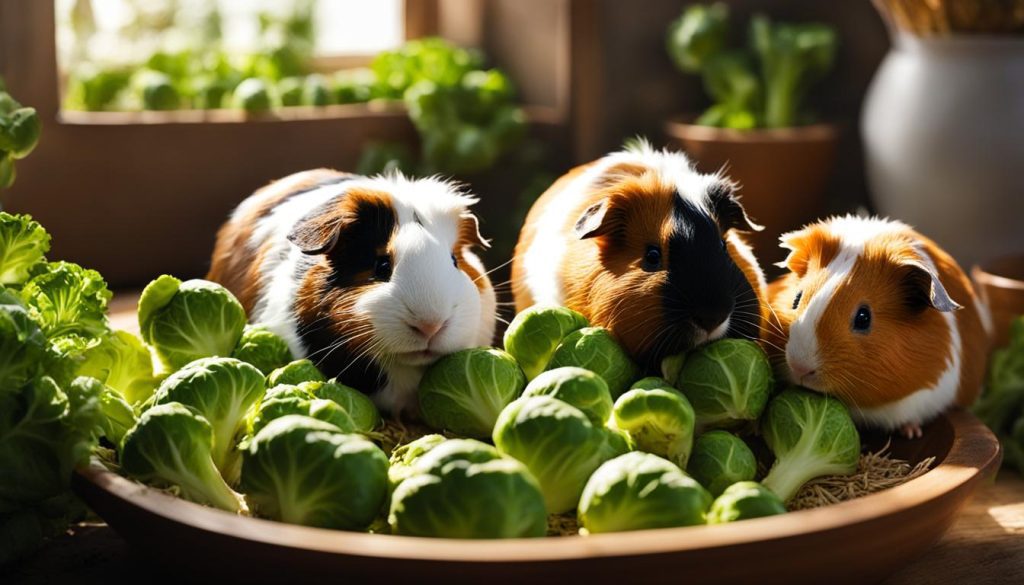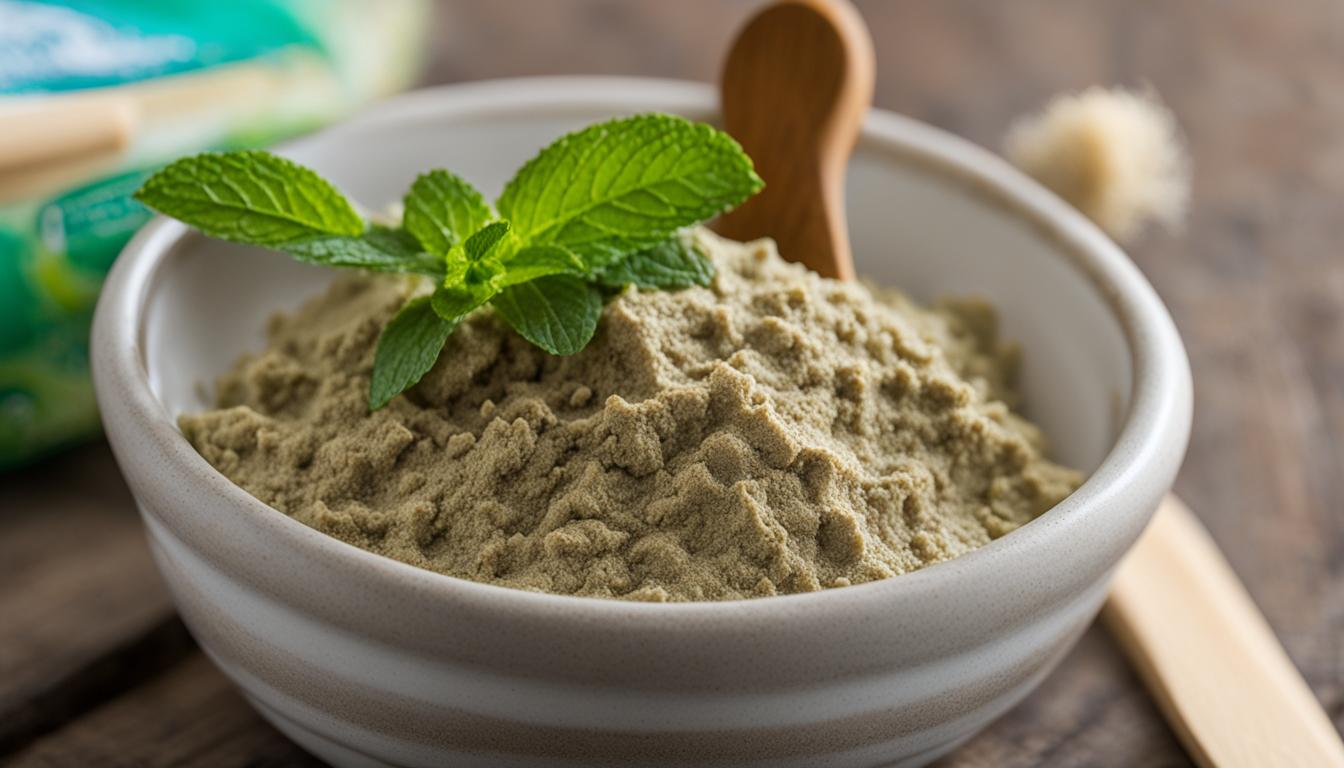Are you a guinea pig owner wondering if it’s safe to feed them Brussels sprouts? Well, you’ve come to the right place! As a guinea pig enthusiast myself, I understand the importance of providing a healthy diet for these adorable little pets. In this article, I will guide you through the benefits, risks, and proper feeding guidelines of Brussels sprouts for guinea pigs. So, let’s dive in and explore whether these leafy greens can be a part of your guinea pig’s diet!
Can Guinea Pigs Eat Brussels Sprouts? Yes. They certainly can.
- Brussels sprouts can be safely included in a guinea pig’s diet in moderation.
- They offer various nutritional benefits, including vitamins A, C, and K.
- It’s important to feed Brussels sprouts in limited quantities to avoid kidney and urinary stones.
- Monitor your guinea pig’s response to Brussels sprouts and adjust the quantity accordingly.
- If your guinea pig doesn’t enjoy Brussels sprouts, there are other safe vegetables to include in their diet.
The Health Benefits of Brussels Sprouts for Guinea Pigs
When it comes to the health of our guinea pigs, providing them with a nutritious diet is essential. One vegetable that offers numerous health benefits for guinea pigs is Brussels sprouts. These mini cabbages are packed with essential nutrients that promote overall well-being and support their specific dietary needs.
Brussels sprouts are rich in antioxidants, which help eliminate harmful free radicals and protect the cells of our guinea pigs. These antioxidants contribute to their overall cellular health and reduce the risk of oxidative stress. Additionally, Brussels sprouts are a great source of fiber, which aids in digestion and ensures a healthy gastrointestinal system for our furry friends.
Guinea pigs need a well-balanced diet that supports their immune system, and Brussels sprouts deliver on this front. They contain vitamins A, C, and K, which play a crucial role in maintaining good eyesight, a strong immune system, and healthy blood and bone maintenance. The vitamin C content is particularly important for guinea pigs, as they cannot produce it naturally and rely on their diet to meet their daily requirements.
Guinea Pig Health Tips
When incorporating Brussels sprouts into your guinea pig’s diet, it’s important to do so in moderation. Offering three to four leaves of Brussels sprouts once or twice a week is sufficient to provide the nutritional benefits without overfeeding. Keep in mind that overconsumption of Brussels sprouts can lead to the formation of kidney and urinary stones due to their oxalate content.
Always wash Brussels sprouts thoroughly to remove any pesticides before offering them to your guinea pig. It’s also crucial to serve them raw, as cooking can make the sprouts harder for guinea pigs to digest. Avoid adding any seasoning, salt, or butter to keep the sprouts healthy and safe for your furry friend.
If your guinea pig shows little interest in Brussels sprouts, don’t worry! There are plenty of other safe vegetables that can be included in their diet, such as dill, oranges, and tomatoes. The key is to prioritize a well-rounded diet that meets their nutritional needs and supports their overall health.

With the proper understanding and application, Brussels sprouts can be a valuable addition to your guinea pig’s diet. Remember to consult with a veterinarian to ensure that Brussels sprouts are suitable for your guinea pig’s specific dietary needs and health condition. By providing a balanced diet that includes nutritious vegetables like Brussels sprouts, you can help your guinea pig thrive and live a happy, healthy life.
Potential Risks and Precautions of Feeding Brussels Sprouts to Guinea Pigs
Feeding Brussels sprouts to guinea pigs can provide numerous health benefits, but it’s important to be aware of the potential risks and take necessary precautions. While Brussels sprouts are generally safe for guinea pigs to consume in moderation, they do contain oxalates, which can contribute to the formation of kidney and urinary stones if consumed in excessive amounts.
It’s crucial to feed Brussels sprouts in moderation and avoid overfeeding guinea pigs with this vegetable. This means offering them in limited quantities, such as three to four leaves once or twice a week. By doing so, you can prevent the accumulation of oxalates and reduce the risk of kidney and urinary issues in your guinea pig.
Another consideration when feeding Brussels sprouts to guinea pigs is their fat-soluble vitamin content, particularly vitamins A and K. These vitamins can be harmful in excessive amounts, so it’s essential to introduce Brussels sprouts gradually and monitor your guinea pig for any adverse reactions. If you notice any signs of discomfort or digestive issues, it’s advisable to reduce or discontinue feeding Brussels sprouts altogether.
Overall, while Brussels sprouts can be a beneficial addition to a guinea pig’s diet, it’s important to exercise caution and follow these precautions to ensure the health and well-being of your furry friend.
Proper Feeding Guidelines for Guinea Pigs and Brussels Sprouts
When it comes to feeding your guinea pig Brussels sprouts, it’s essential to follow proper guidelines to ensure their health and well-being. Start by thoroughly washing the sprouts to remove any pesticides, as these can be harmful to guinea pigs. Once cleaned, you can offer three to four leaves of Brussels sprouts to your furry friend once or twice a week.
It’s crucial to monitor your guinea pig’s response to Brussels sprouts and adjust the quantity accordingly. Some guinea pigs may love these mini cabbages, while others may not show much interest. If your guinea pig doesn’t enjoy Brussels sprouts, don’t worry! There are plenty of other safe vegetables that you can include in their diet. Vegetables like dill, oranges, and tomatoes can be great alternatives. Just make sure to introduce new foods gradually to avoid any digestive issues.
When serving Brussels sprouts to your guinea pig, it’s important to remember that they should always be served raw. Cooked foods can be challenging for guinea pigs to digest, so it’s best to stick with fresh, uncooked vegetables. Additionally, avoid seasoning or cooking the sprouts with salt or butter, as these additions are unhealthy for guinea pigs.
Guinea Pig Treats: Balancing their Diet
While Brussels sprouts can be a tasty treat for your guinea pig, it’s important to remember that they should be given in moderation. Treats should never replace the main components of their diet, which consist of hay, fresh water, and high-quality guinea pig pellets. These balanced meals provide the necessary nutrients and fiber for their overall health.
Treats like Brussels sprouts should only make up a small portion of their diet to avoid potential health issues such as obesity and digestive problems. Remember to prioritize guinea pig nutrition and offer a variety of safe vegetables to keep their diet balanced and interesting.
Conclusion
A healthy diet for guinea pigs can include Brussels sprouts in moderation. These miniature cabbages offer various vitamins and minerals that contribute to overall guinea pig health. They provide vitamins A, C, and K, which support good eyesight, a strong immune system, and proper blood and bone maintenance. Additionally, Brussels sprouts contain antioxidants and fiber, promoting digestion and overall well-being in guinea pigs.
However, it’s essential to exercise caution when feeding Brussels sprouts to guinea pigs. The presence of oxalates in excessive amounts can lead to the formation of kidney and urinary stones. To prevent any potential issues, it’s important to feed Brussels sprouts in limited quantities and observe the guinea pig’s response.
If your guinea pig does not enjoy Brussels sprouts, there are plenty of other safe vegetables to include in their diet. Dill, oranges, and tomatoes are just a few examples of nutritious alternatives. The key is to prioritize your furry friend’s overall well-being and nutritional needs when deciding on their diet.
FAQ
Can guinea pigs eat Brussels sprouts?
Yes, Brussels sprouts can be safely included in a guinea pig’s diet in moderation.
What are the health benefits of Brussels sprouts for guinea pigs?
Brussels sprouts offer various nutritional benefits, including vitamins A, C, and K, which help maintain good eyesight, support the immune system, aid in digestion, and contribute to blood and bone health.
What are the potential risks and precautions of feeding Brussels sprouts to guinea pigs?
Brussels sprouts should be given in limited quantities and not be overfed, as they contain oxalates that can lead to kidney and urinary stones in excessive amounts. Additionally, fat-soluble vitamins in Brussels sprouts can be harmful in excessive amounts.
How should I feed Brussels sprouts to my guinea pig?
It’s recommended to wash Brussels sprouts thoroughly, remove any pesticides, and provide three to four leaves once or twice a week. Brussels sprouts should always be served raw and not seasoned or cooked with salt or butter.
What should I do if my guinea pig doesn’t like Brussels sprouts?
If a guinea pig doesn’t show interest in Brussels sprouts, there are many other safe vegetables that can be included in their diet, such as dill, oranges, and tomatoes.






